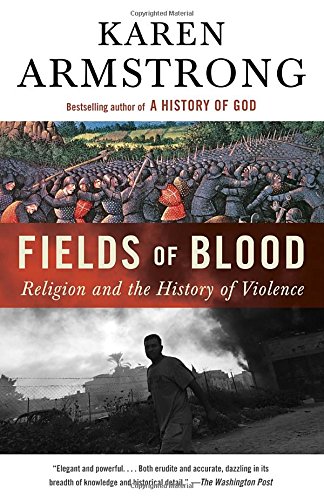Fields of Blood: Religion and the History of Violence
With a new postscript In these times of rising geopolitical chaos, the need for mutual understanding between cultures has never been more urgent. Religious differences are seen as fuel for violence and warfare. In these pages, one of our greatest writers on religion, Karen Armstrong, amasses a sweeping history of humankind to explore the perceived
With a new postscript
In these times of rising geopolitical chaos, the need for mutual understanding between cultures has never been more urgent. Religious differences are seen as fuel for violence and warfare. In these pages, one of our greatest writers on religion, Karen Armstrong, amasses a sweeping history of humankind to explore the perceived connection between war and the world’s great creeds—and to issue a passionate defense of the peaceful nature of faith.
With unprecedented scope, Armstrong looks at the whole history of each tradition—not only Christianity and Islam, but also Buddhism, Hinduism, Confucianism, Daoism, and Judaism. Religions, in their earliest days, endowed every aspect of life with meaning, and warfare became bound up with observances of the sacred. Modernity has ushered in an epoch of spectacular violence, although, as Armstrong shows, little of it can be ascribed directly to religion. Nevertheless, she shows us how and in what measure religions came to absorb modern belligerence—and what hope there might be for peace among believers of different faiths in our time.
An Amazon Best Book of the Month, November 2014: Does religion lead to violence? This is the question that Karen Armstrong, the erudite former nun, asks in Fields of Blood: Religion and the History of Violence. Her answer is “no”—or more specifically, that religion is not itself a source of violence and the problem lies more deeply in “our human nature and the nature of the state.” To prove her point, she covers roughly five thousand years of religious history, from Gilgamesh to the present day. Along the way, she builds the case against those who state, often without much context, that “religion has been the cause of all the major wars in history.” This is both an apologia and a wide-ranging and very readable lesson in the history of religion. It may not completely change the mind of everyone who reads it; but like everything Armstrong writes, it will leave them more enriched. –Chris Schluep







Comments